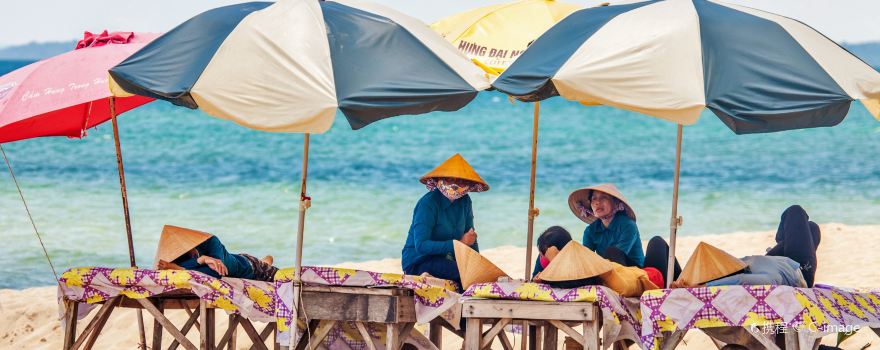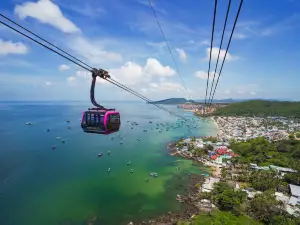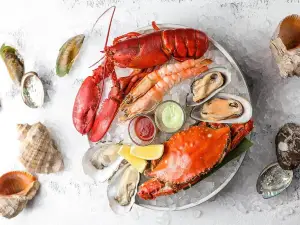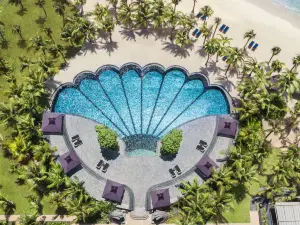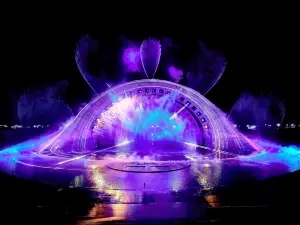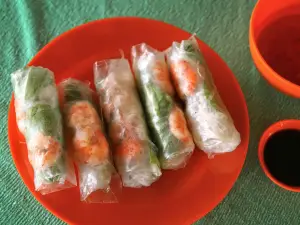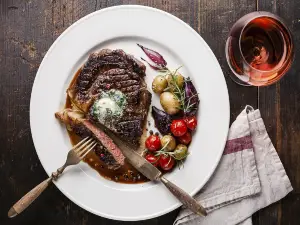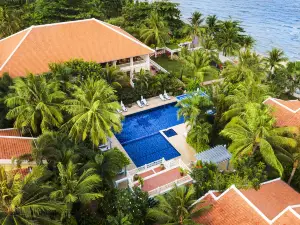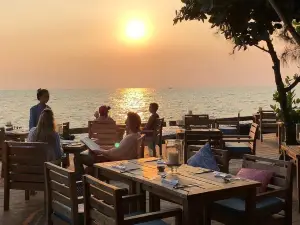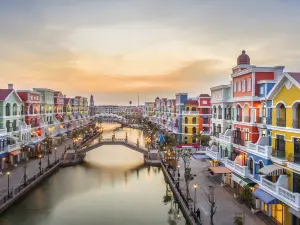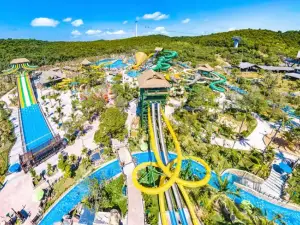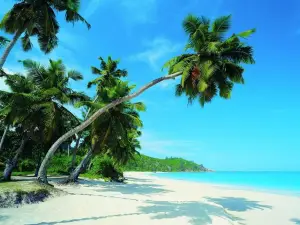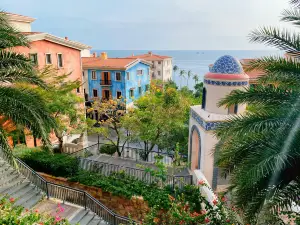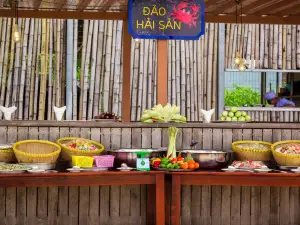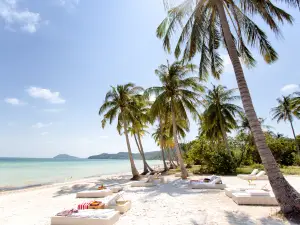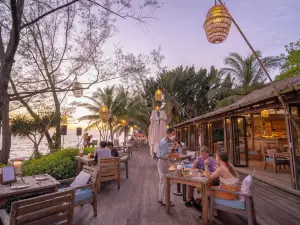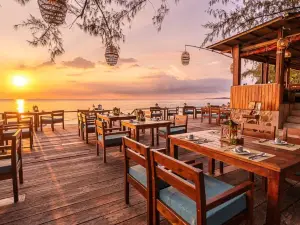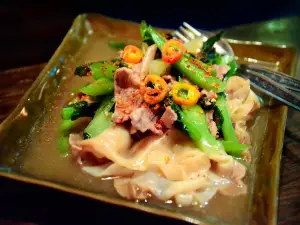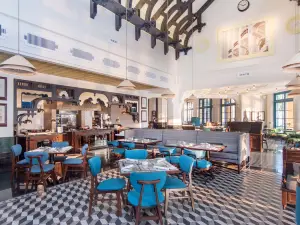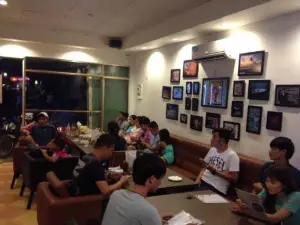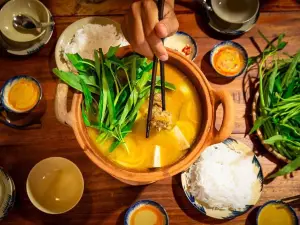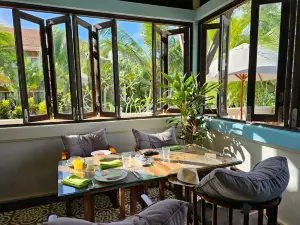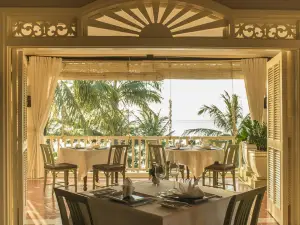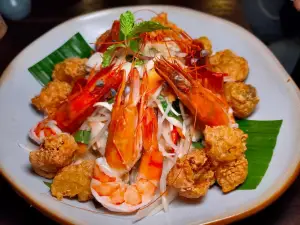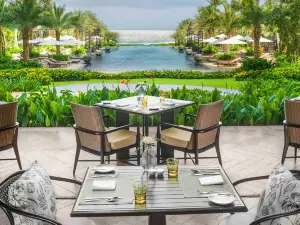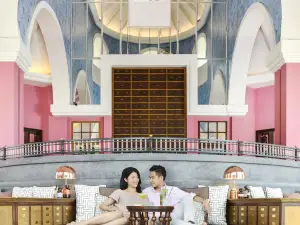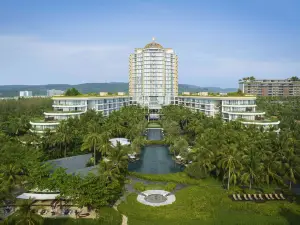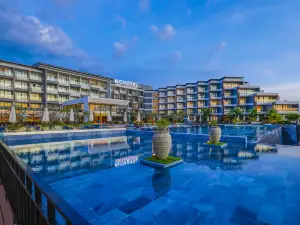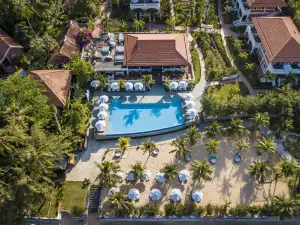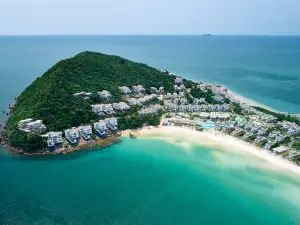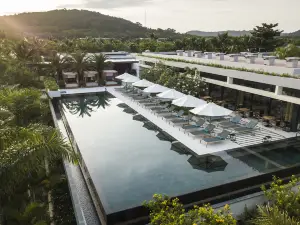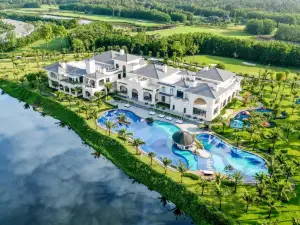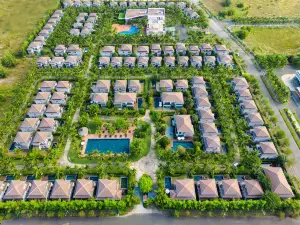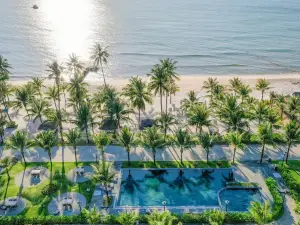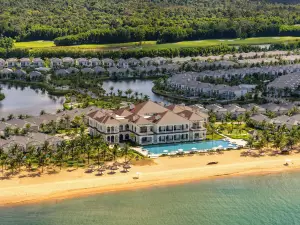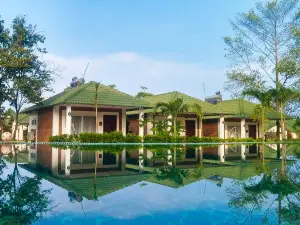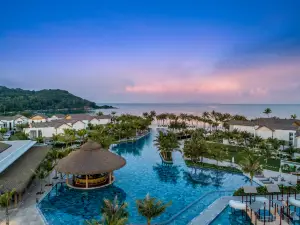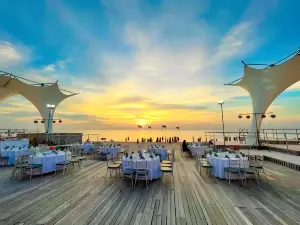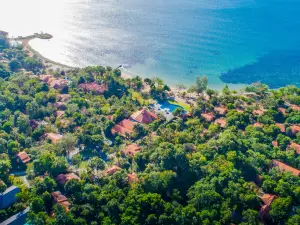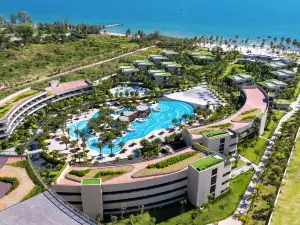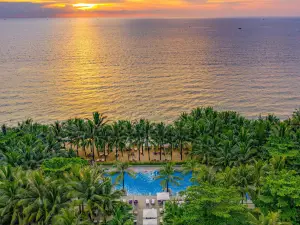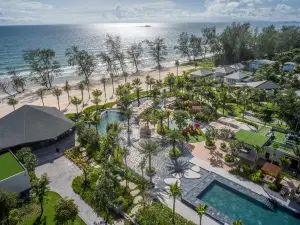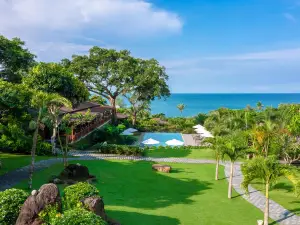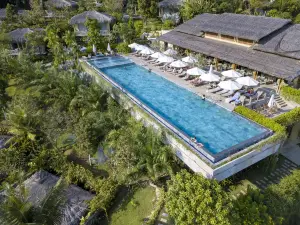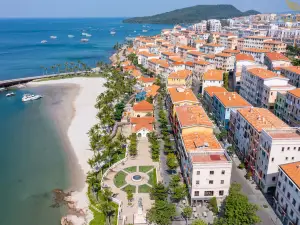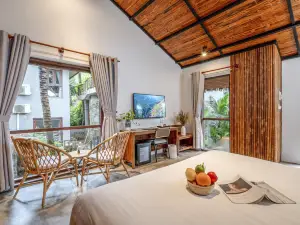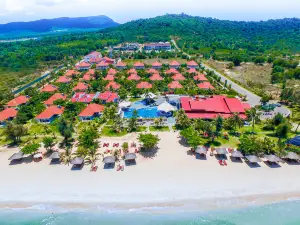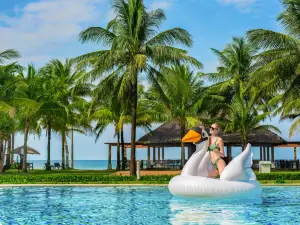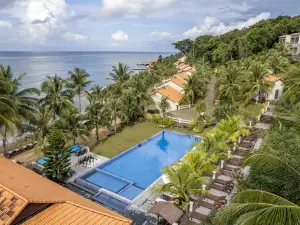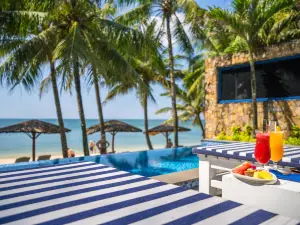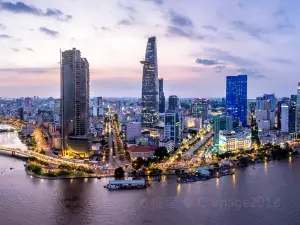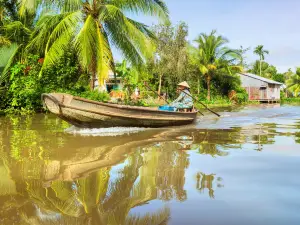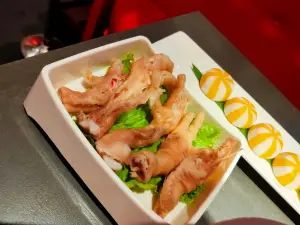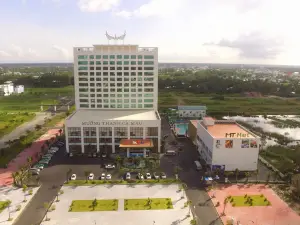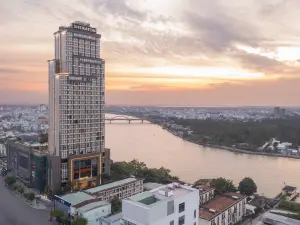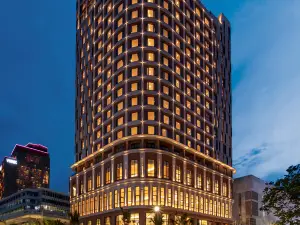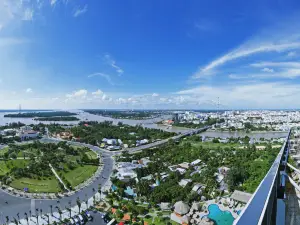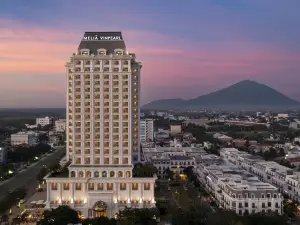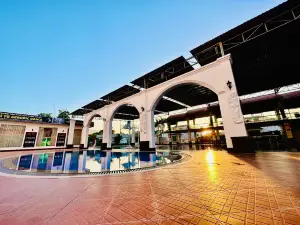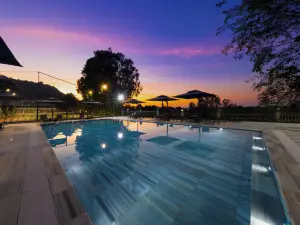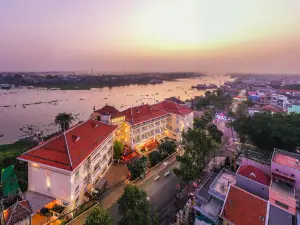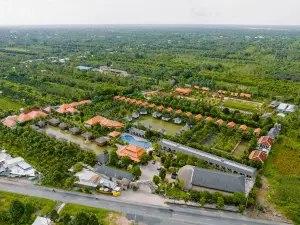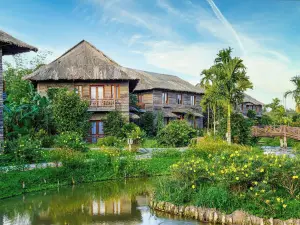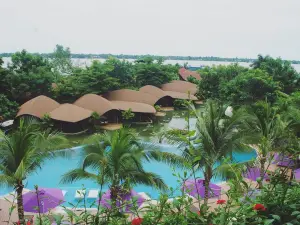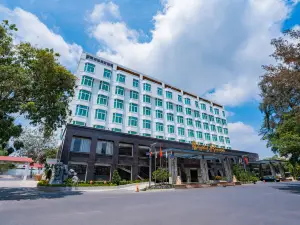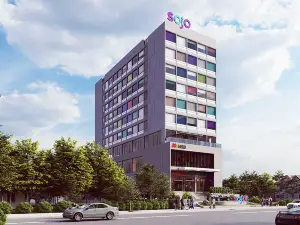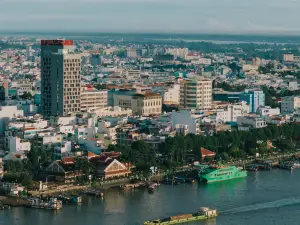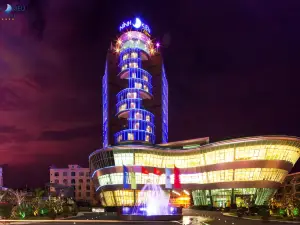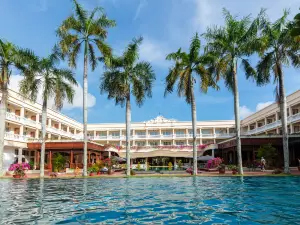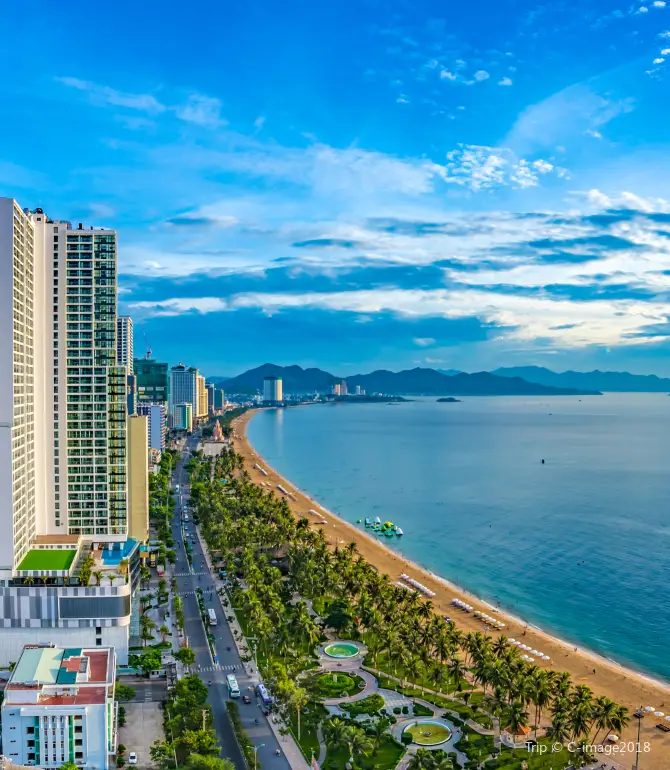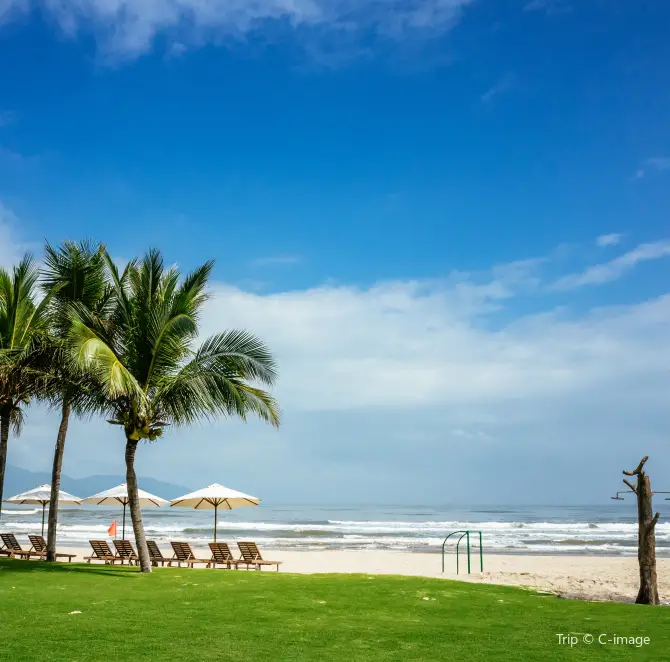Things to Do in Phu Quoc Island in 2025 - Top Attractions, Local Food, Hotels & Travel Tips (Updated June, 2025) | Trip.com
About Phu Quoc Island
Recommended trip: 3–5 day(s)
Recommended trip: 3–5 day(s)Current Weather Conditions
Phu Quoc Island Local Experiences Map

Trending in Phu Quoc Island
Phu Quoc Island Local Travel Guide 2025
Phu Quoc Island Brief Guide
Phú Quốc is located in southwestern Vietnam and is about the same size as Singapore. The natural ecological environment is very rich. You can lie on the beach and enjoy the ocean breeze or join the local fisherpeople fishing for cuttlefish. Phú Quốc's two main specialties are pearls and fish sauce. There are several fish sauce production facilities on the island, four of which you can tour and learn about the process of making this popular sauce. Phú Quốc is great for vacationing. You can stroll slowly along the southern white sand beaches of Phú Quốc Island and enjoy the romantic atmosphere underneath the palm trees. Take a boat to the outlying islands and you can sunbathe on an amazing natural beach or dip into a renewing mud bath. Phú Quốc is a vacation destination also well suited for families with children. The Vinpearl Park waterpark and Vinpearl Safari are both places children are absolutely sure to enjoy.
Phu Quoc Island Must-try Local Experiences
1. Discover the Untouched Beauty of Phu Quoc's Islands Explore Phu Quoc's southern islands with a boat tour, such as An Thoi Islands, etc. Enjoy snorkeling or diving in turquoise waters, and relax on pristine beaches like Sao Beach and Bai Dai Beach. 2. Journey through History at Phu Quoc Prison Visit Phu Quoc Prison to learn about the island's history and gain a deeper understanding of the local development situation. 3. Experience Tranquility at Ho Quoc Temple Find peace at Ho Quoc Temple, a beautiful Buddhist temple with intricate architecture and panoramic sea views. An immersive tour of Ho Quoc Temple can help you achieve a return to the simplicity and innocence of the soul. 4. Venture into Phu Quoc National Park Trek through Phu Quoc National Park's lush rainforests, discover waterfalls and enjoy views from a high place. 5. Visit Vinpearl Safari Phu Quoc Explore Vinpearl Safari Phu Quoc, Vietnam's largest wildlife conservation park, home to over 3,000 animals from 150 species. 6. Discover the Phu Quoc Night Market Experience the vibrant Phu Quoc Night Market, where you can sample local street food, shop for souvenirs, and enjoy the island's nightlife. 7. Delve into Local Life at Duong Dong Market Immerse yourself in the vibrant atmosphere of Duong Dong Market, the island's largest market, offering fresh produce, seafood, spices, and handicrafts. 8. Experience Traditional Fish Sauce Making Visit a fish sauce factory to learn about the traditional fermentation process and sample Phu Quoc's famous fish sauce, bringing a new experience to your taste buds. 9. Photograph the Starfish Beach Starfish Beach is known for its clear waters and abundance of starfish, making it a picturesque location for photography. 10. Indulge in a Rejuvenating Spa Treatment Pamper yourself with a relaxing spa treatment in Phu Quoc, known for its wellness retreats offering traditional Vietnamese massages and herbal baths, to make your body and mind get comprehensive relaxation.
Phu Quoc Island Must-see Attractions
Phu Quoc Island is a Vietnamese tropical paradise featuring the world's longest cable car system at Hon Thom Nature Park, the vast VinWonders amusement park, the unique Vinpearl Safari wildlife park, the lively Phu Quoc Night Market, and the idyllic Sao Beach, offering a blend of adventure, culture, and relaxation.
Phu Quoc Island Food Guide
Phu Quoc Island's food is a rich tapestry of flavors, featuring dishes like Bún Kèn with coconut milk and barracuda, refreshing Herring Salad wrapped in rice paper, simply grilled Trachurus fish, and versatile Sea Urchin, all showcasing the island's seafood abundance and culinary traditions.
Phu Quoc Island Transportation
Phu Quoc Island's transportation infrastructure is centered around its international airport and passenger ports, which are essential for the connectivity and development of this popular tourist destination. Phu Quoc International Airport (IATA: PQC, ICAO: VVPQ) is the primary gateway for air travel to the island, located about 9 kilometers south of the city center Duong Dong. The airport is well-equipped with modern facilities and serves a range of domestic and international destinations, making it a crucial hub for the influx of tourists. To reach the city center from the airport, visitors can opt for taxis, shuttle buses, or motorbike taxis, with the journey taking approximately 10 to 15 minutes depending on the mode of transport. Passenger ports on Phu Quoc Island, such as the one near Duong Dong, play a significant role in sea transportation. The upcoming Phu Quoc International Passenger Port, which is expected to handle large cruise vessels, will further enhance the island's accessibility and appeal to international tourists. Currently, visitors can use ferries from mainland Vietnam to reach the island, with services connecting Phu Quoc to Rach Gia and Ha Tien.
Phu Quoc Island Where to Stay
Phu Quoc Island is a tropical paradise in Vietnam, renowned for its stunning beaches and vibrant night markets. The island's accommodation is spread across various regions, each offering unique experiences and amenities for travelers.
Phu Quoc Island Best Time To Visit
The best time to visit Phu Quoc Island is from November to April, during the dry season, when the weather is sunny with clear skies and less humidity, offering ideal conditions for beach activities and water sports. This period is perfect for sunbathing, snorkeling, and diving, with the sea being calm and clear. However, it is also the peak tourist season, so expect crowded beaches and higher prices.
Phu Quoc Island Travel Tips
1. Respectful Temple Attire: When visiting temples like Dinh Cau or Ho Quoc Pagoda, dress modestly by covering shoulders and knees. Remove shoes before entering sacred spaces. 2. Beach Safety First: Some beaches on Phu Quoc Island have strong currents. Always swim in designated areas and heed local warnings to ensure your safety. Be cautious of rip tides and avoid swimming during bad weather conditions.
Phu Quoc Island Useful Guide
Vietnamese is the official language of Phu Quoc Island, with its origin in the Austroasiatic language family and variations across regions. While English is increasingly popular, especially in tourist areas, visitors will benefit from learning basic Vietnamese phrases. Translation services may not be widely available, but language apps can assist in communication. The presence of multiple languages reflects Vietnam's diverse ethnic composition, with 3 major dialects recognized nationwide.
Trip.Best: Phu Quoc Island
Things to do in Phu Quoc Island
What to Do
Vinpearl Safari Phu Quoc
Thom island
Phu Quoc Night Market
Where to Stay
What to Eat
Pink Pearl by Olivier E. - JW Marriott Phu Quoc Emerald Bay Resort & Spa
Tempus Fugit - JW Marriott Phu Quoc Emerald Bay Resort & Spa
SEA SHACK
Department of Chemistry Bar - JW Marriott Phu Quoc Emerald Bay Resort & Spa
Phu Quoc Island Moments: Through Travelers' Eyes
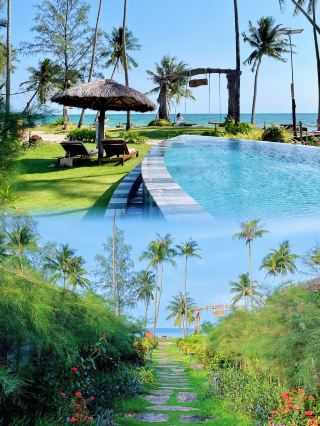
Phu Quoc Island, Vietnam | Stunningly Beautiful

Phu Quoc, Vietnam 🇻🇳🎡

Spring Getaway in Phu Quoc: JW Marriott Emerald Bay

Vietnam's Disneyland, Island Style, Water Park, Food Paradise!

New World Phu Quoc Resort | A Dreamy Paradise on Earth

5-Day Vietnam Tour: Visa-Free Travel

Phu Quoc Night Market: A Food Lover’s Paradise

🌴 Phu Quoc's Hidden Gem: Premier Residences 🏖️
Best of Phu Quoc Island
Site Operator: Trip.com Travel Singapore Pte. Ltd.
